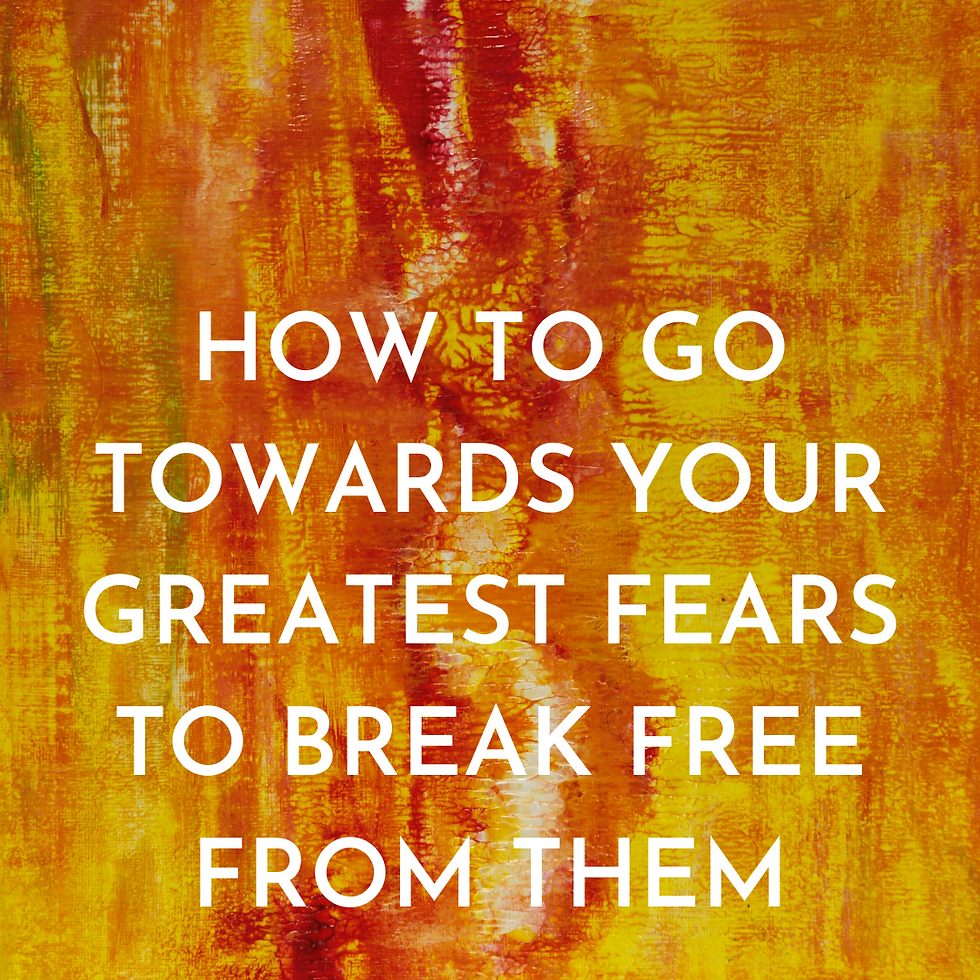Beyond The ‘Them’ Versus ‘Me’ Blame-Game
- createinneralchemy
- Nov 21, 2023
- 5 min read
Updated: Nov 28, 2023

We all experience, at times, various forms of challenging behaviours, or what we experience as poor treatment from others. Experiences such as being ignored, rejected, taken for granted, disrespected or spoken to dismissively.
When it seems as though there’s a repetitive element to it, a pattern, therapists can suggest to their clients that their experiences with others may be related to their own conditioning, their inner beliefs about the world and ‘others’.
And to some who hear those suggestions, that can feel deeply enraging, and even problematic. Is this ‘victim-blaming’? Are they suggesting that it is my fault if I am experiencing these bad treatments from others? Are they even perhaps suggesting that I’m making this up and that it’s ‘all in my head?’ There can be considerable push back on suggestions that may seem to imply this, and for understandable reasons.
There can also be an unwillingness to examine and ‘work through’ our own stuff, as it can feel unfair to be doubly punished – first experiencing recurring bad treatments from people and then being the one who has to ‘do the work’. Again, all fully understandable.
However, I would like to suggest an alternative perspective, beyond what I see as a false dichotomy, a ‘them’ versus ‘me’ blame-game.
The metaphor of tending to our immune system
I like to look at it the way I look at taking care of one’s immune system’s strength. If one becomes ill, it may be because they stayed out in the wind and in the cold, or were exposed to a virus. AND, the efficiency of their immune system can improve their chances of experiencing a minor form of illness, or no illness at all, in the same conditions.
No one would suggest that the wind or the virus didn’t exist or were invented by the person experiencing them. However, the way it has affected their lives, also has to do with the strength of their own immunity. It is not a case of blaming oneself there, either, but simply of looking at ways to improve our own experience of challenging and real external situations.
Therefore, in the case of our above-described situation of feeling hard done-by by the actions of others, we can look at it in a similar way. Are some people going to behave poorly around us at times? Most likely. How much that will trigger stress, anxiety, anger or upset, has to do with what we make it mean (about ourselves or about them). In that context, the stories we tell ourselves, and the goggles we were given to wear out in the world, sometimes from the very beginning (our conditioning), can all play a big part in our assumptions and therefore our experience, from very little or no emotional upset, to deeply painful experiences.
As an example, let’s imagine you see a neighbour or acquaintance at a distance in the street. You're about to wave “hello”, walk up to them and say hi, but you see them look at you or seemingly through you, avert their eye and turn the other way. Depending on your own stories about yourself and others, you may imagine that this is yet again an example of how rude and uncaring people behave towards you, that they don’t respect you or ignore you, and certainly don’t appreciate you. It can poke at wounds of low self-esteem and you might feel sad or angry.
However, if this is not a story about yourself in relation to others that you carry with you, you may be experiencing the same behaviour, but might be a lot more inclined to give them the benefit of the doubt and imagine forgiving scenarios such as: ‘perhaps they simply weren't wearing their contact lenses and didn’t recognise me from that distance?’ or ‘perhaps they just heard some difficult news or had a big argument with their spouse and don’t feel able to connect with an acquaintance in a light-hearted manner right now?’ or even ‘perhaps they are feeling self-conscious because they ate lots of garlic at lunch and are afraid of having bad breath?’ and so one and so forth. There is an infinite number of plausible reasons why this situation happened, other than the one story which involves people disliking us.
Confirmation bias
Yet, neurology has also shown that we have what is called a ‘confirmation bias’. It’s as though once we have a strong story or belief, we scan our reality and always notice what confirms this story and therefore reinforces it. With the example above, for the person who has a story or belief about others ignoring and disrespecting them, they will not only believe that this is the case in that particular situation, they will also store it with the full emotional charge of the hurt it caused, and it will become a part of the narrative, confirming to them that similar future situations are most likely another ‘proof’ that the people in their lives are simply terrible to them.
A person without that specific narrative about the world, will most likely not even remember the incident the next day...
From that perspective, just as we would be well advised to tend to our immune systems in times of bad weather and rampant virus activity, by increasing our level of physical exercise, outdoor time, good nutrition and vitamin intake ; so, too, we might find it useful to look into our belief system and emotional wounds and do the healing work required to get ‘emotionally fit’ and less pushed out of balance by the behaviours of others.
Does it ‘let them of the hook?’ Perhaps... But for myself, I find it gives us our freedom back, liberating us from anger or resentment; and I find it way more empowering to take action on what I actually have power to change, in this case, my mind’s interpretations and the emotional response developed from it.
The tools I use with clients in sessions are designed to help clients revisit, renegotiate and ‘rewrite’ the story of their place in the world and with others. I believe it can help us transform our outer lives as well as our inner lives.
Working together
If you’d like more information about therapy sessions together, you can read more about my work on the various pages of this website, such as here about my approach and techniques used in sessions, or here for practicalities of working together. Sessions are all online. If you'd like therapeutic support to work through your internal dynamics, and change how you feel with regard to the difficult behaviours you experience with other people, get in touch. I offer a free intro call to meet and discuss working together. You can contact me via email at jessica.wallace@mailo.com.



